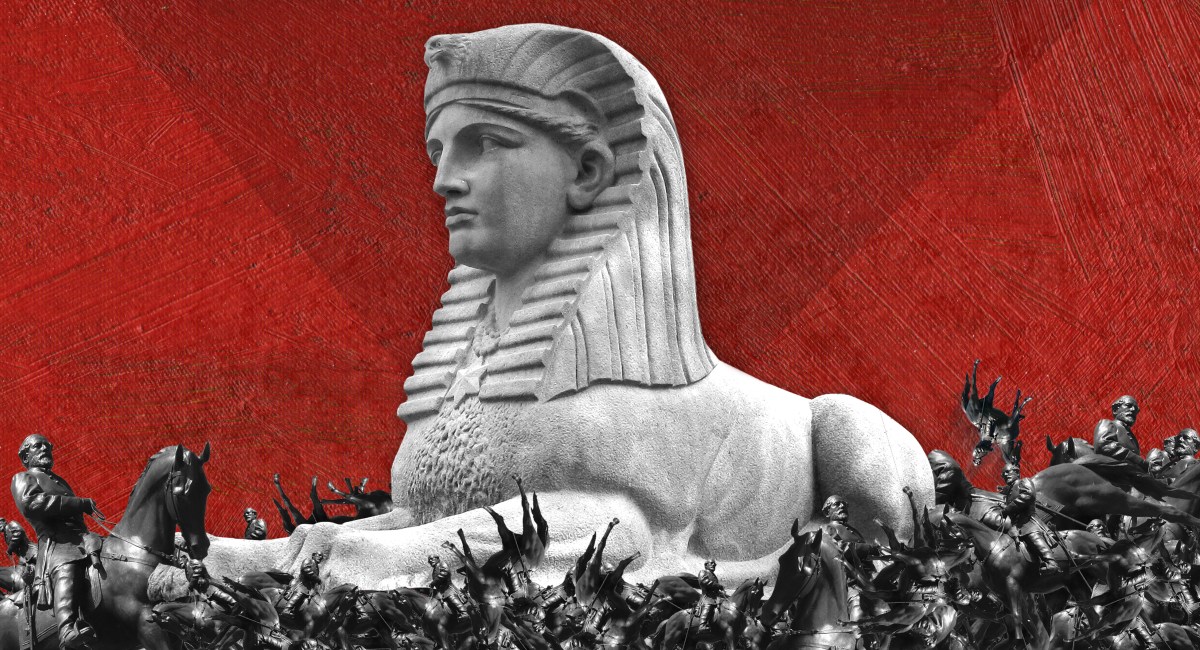Civil War monuments in the North erased an emancipated Black population. But the Sphinx looked to a new world: an integrated Africa and America.
American Sphinx
American Sphinx

Colin Dickey | Longreads | August 2017 | 14 minutes | 3380 words
We had come to a place muted of light. Every day felt like a potential backsliding, the news unrelenting, as though the nation had finally given up pushing back against its own savagery — and every day felt like the held breath before the fall. I thought increasingly of Stefan Lux, a Jewish journalist from Slovakia: Aghast at the rise of anti-Semitism during the 1930s, and at the inability of Europe’s bureaucratic governments to respond, Lux walked into the General Assembly of the League of Nations and, before the gathered diplomats, fatally shot himself. His last words were “C’est le dernier coup.” This is the final blow. It was only July 3, 1936; the blows would keep coming long after Lux’s death.
The center was not holding; there hadn’t been any center for decades. It was a country of bankrupt politicians, of killings by police so commonplace they barely made the news. It was a country in which families were routinely broken up by early morning immigration raids, where men abducted for traffic violations and women arrested for misdemeanors were sent off to countries they hadn’t known for decades. It was a nation where young white men found solace drifting through rage and irony, and felt alive only by terrorizing others. It was not a country in open revolution, but more and more its people felt revolution would at least be the exhalation they’d been waiting for. It was a country waiting for the final blow.
Whatever rough beast Yeats had seen had already slouched its way out of the desert, laying waste to everything that fell under its pitiless, blank gaze. The body of a lion and the head of a man, the indignant desert birds circling around its slow thighs, it has laid waste to the veneer of civility and decorum that had once been papered over the country.
Continue reading “American Sphinx”




 Get the Longreads Weekly Email
Get the Longreads Weekly Email